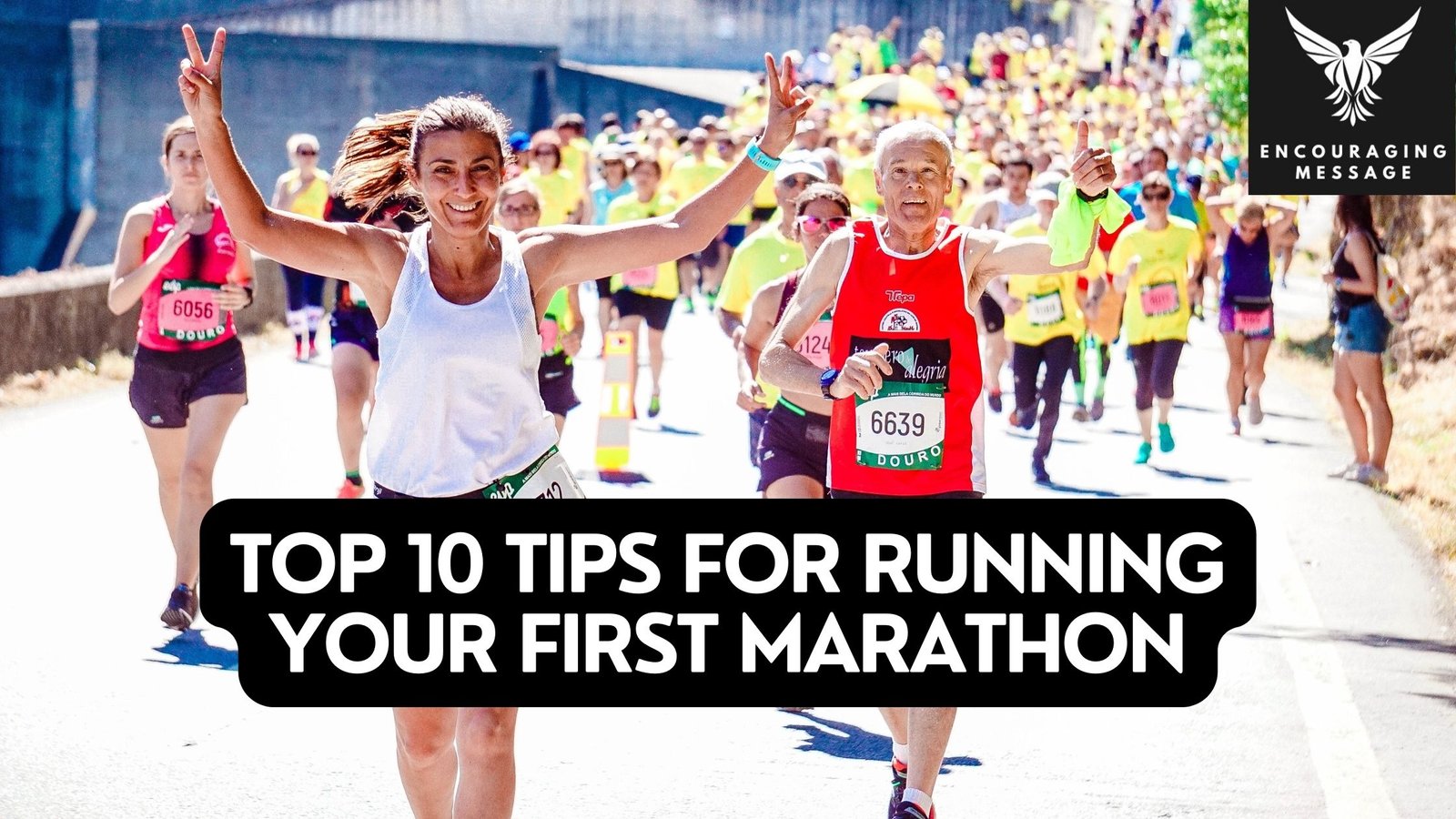Embarking on the journey of running your first marathon is a thrilling and challenging endeavor. As you lace up your running shoes and set your sights on that 26.2-mile finish line, it’s crucial to be well-prepared physically and mentally. In this blog post, we’ll explore the top 10 tips for running your first marathon to guide you through the process of running the marathon and make it an unforgettable experience.
Mastering the Miles : Top 10 Tips for Running Your First Marathon
To run the first marathon is an exhilarating and transformative experience. The decision to take on 26.2 miles of relentless determination and endurance marks a significant milestone in your fitness journey. Whether you’re a seasoned runner pushing your limits or a novice lacing up your sneakers for the first time, the marathon journey is a test of physical and mental resilience.
This blog post will guide you through the essential tips that can make the difference between crossing the finish line triumphantly and hitting the infamous ‘wall.’ From strategic training approaches to mental preparation, our top 10 tips for running your first marathon are designed to help you navigate the challenges of marathon and turn it into a rewarding accomplishment. Lace up, set your sights on the finish line, and let’s explore the keys to success on this remarkable running adventure.
Start with a Solid Training Plan :
The foundation of a successful marathon lies in a well-structured training plan. Begin your preparation several months in advance, gradually increasing your mileage and incorporating cross-training to build strength and endurance. A mix of long runs, speed workouts, and recovery days will help you develop the stamina needed for race day.
Invest in Quality Gear :
Running a marathon requires the right gear to ensure comfort and prevent injuries. Invest in a good pair of running shoes that suit your gait, as well as moisture-wicking clothing to keep you dry during the run. Don’t forget essentials like a well-fitted sports bra, blister-resistant socks, and a GPS watch to track your progress.
Nutrition Matters :
Proper nutrition is a key component of marathon training. Fuel your body with a balanced diet rich in carbohydrates, proteins, and healthy fats. Experiment with different nutrition strategies during your long runs to find what works best for you. Stay hydrated, especially as the mileage increases, and consider energy gels or chews to replenish electrolytes during the race.
Listen to Your Body :
Pay close attention to your body throughout your training. If you experience persistent pain or discomfort, don’t ignore it. Consult with a healthcare professional or a sports medicine specialist to address any potential issues before they become serious injuries.
Mental Preparation :
Running a marathon is as much a mental challenge as it is physical. Develop a positive mindset and visualization techniques to overcome doubts and stay focused during the race. Break the marathon into smaller, manageable segments and celebrate each milestone.
Simulate Race Conditions :
Familiarize yourself with race conditions by simulating them in your training. Practice running at the same time of day as your race, wear your race-day gear during long runs, and experiment with nutrition and hydration strategies. This will help you identify and address any potential issues before race day.
Taper Properly :
In the weeks leading up to the marathon, gradually reduce your training volume to allow your body to recover and build energy reserves. Tapering is essential for peak performance on race day. Trust your training and resist the urge to squeeze in last-minute intense workouts.
Know the Course :
Familiarize yourself with the marathon course, including elevation changes and water stations. Understanding the route will help you pace yourself appropriately and mentally prepare for challenging sections. Many marathons offer course previews or maps online, so take advantage of these resources.
Race Day Strategy :
Have a well-thought-out race day strategy, including pacing, hydration, and nutrition plans. Start conservatively, especially if it’s your first marathon, and gradually increase your pace as you feel comfortable. Stick to your plan but be flexible and adapt if needed.
Celebrate Your Achievement :
Crossing the finish line of your first marathon is a monumental accomplishment. Take the time to celebrate your hard work and dedication. Reflect on the journey, appreciate the progress you’ve made, and consider what lessons you can carry forward into your future running endeavors.
Final Thoughts :
Embarking on the journey to run your first marathon is a challenging yet rewarding experience. By following these top 10 tips for running your first marathon, you’ll be well-prepared physically and mentally to conquer the 26.2-mile distance. Remember, the key is consistent training, proper nutrition, and a positive mindset. As you cross the finish line, savor the moment and relish in the achievement of joining the ranks of marathon runners. Happy running!
Read More -:
